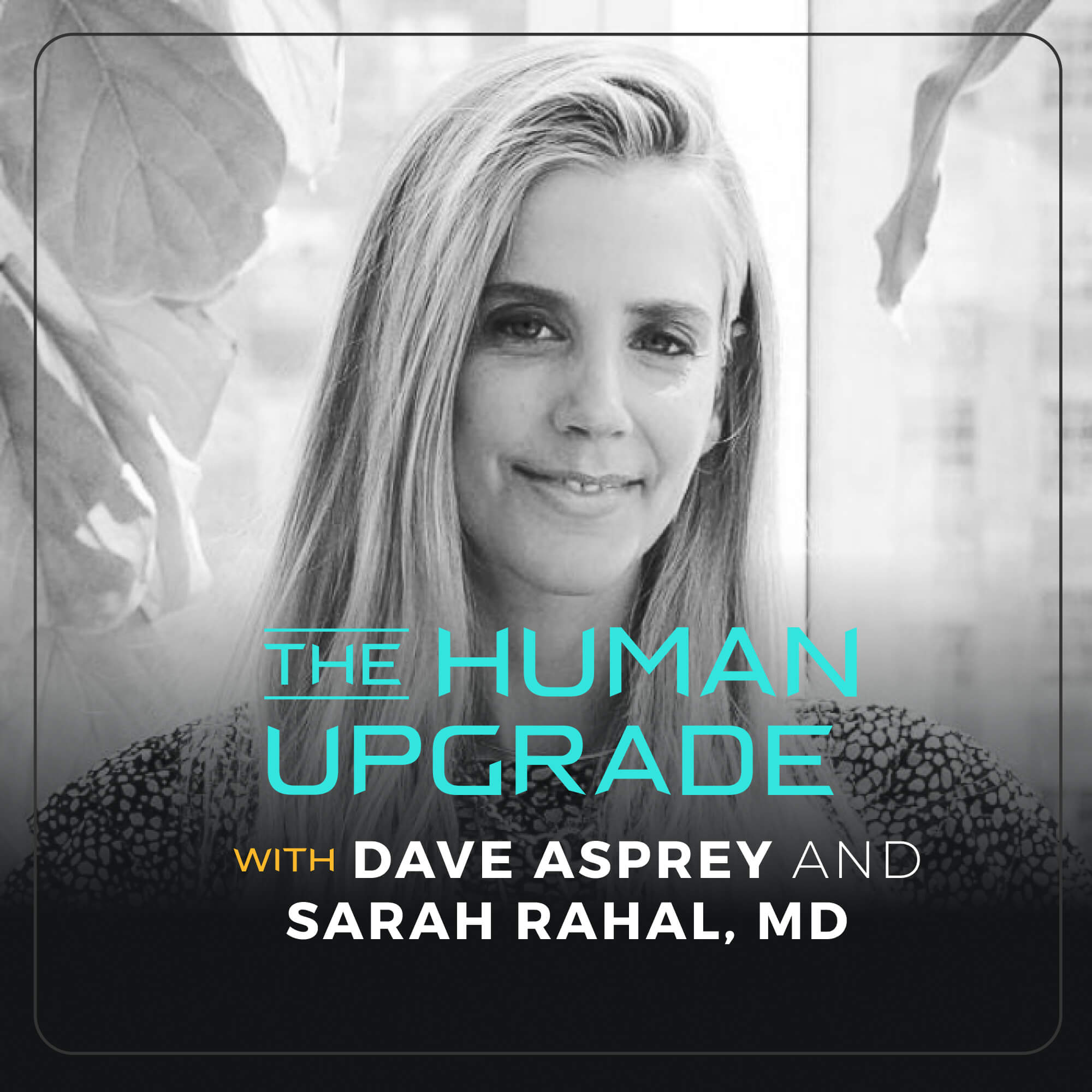
EP 1101
1100. Introducing a REAL Superfood: Using Colostrum for Strong Barriers
This episode serves as the ultimate Colostrum 101 course for anyone interested in learning more, living healthier, and even for those still harboring doubts over things like fasting and ethical sourcing. Dr. Sarah Rahal answers it all and more.
Subscribe To The Human Upgrade
In this Episode of The Human Upgrade™...
About ten years ago, I began working colostrum into my product development efforts – seeing its game changing nutritional value for exactly what it was, well before the mainstream sank its teeth into it. Today’s guest has the experience and intellect to take us deep into the science behind it.
Dr. Sarah Rahal, MD – the brainchild of ARMRA – is a double board-certified pediatric neurologist with expertise in environmental and functional medicine. After years of clinical work and research, she was alarmed by the rise of chronic diseases in young patients due to modern environmental factors like pollutants, pesticides, and more.
This led her to leave traditional medicine and develop ARMRA’s technology with a mission to minimize the modern environmental impact on human health – a truly honorable and trailblazing path that she explains for us today, from early personal health issues to the future of her fascinating company.
More than anything though, this episode serves as the ultimate Colostrum 101 course for anyone interested in learning more, living healthier, and even for those still harboring doubts over things like fasting and ethical sourcing. Dr. Sarah Rahal answers it all and more.
“Colostrum is one of the only things in existence that is truly a food, first.”
Sarah Rahal, MD
(02:59)
Dr. Rahal on the State of Children’s Health
- Dr. Jeffrey Bland: The Disease Delusion #139
- Seeing a boom in chronic disease among young kids
- Detrimental environmental factors
(05:50)
Disillusionment & Leaving the Healthcare System
- Dr. Rahal’s personal illness journey
- Realizing critical faults in the healthcare model
- Toxicity of a hospital environment
(08:14)
Intro to the Formula Industry & Colostrum
- Chemical brew of modern infant formula
- Slow legislation leads to outdated products
- What is colostrum?
- Why it is the single most unique natural resource
- Helpful for babies and people of all ages
- Potential to combat the flu
- Supporting the mucosal barrier
(12:44)
Dr. Rahal’s Near-Death Experience
- Collapsed colon and severe gut issues
- Mold’s potential role in her illness
- Links between mold, strep throat, PANDAS, and ADHD
- Recovering with the use of colostrum
(17:35)
Massive Issues in the Dairy Industry
- All the benefits of colostrum without dairy’s side effects
- Two years of formulation R&D
- Dr. Rahal explains Cold-Chain BioPotent Technology
- Why conventional dairy is an adulterated product
- Prioritizing grass-fed dairy
- Processed to mimic raw dairy
(21:27)
ARMRA’s Unique Formulation
- Processed to mimic raw dairy
- Focusing on preserving beneficial bioactive compounds
- Animal diet impact on end-result product quality
- Animal stress impact on end-result product quality
- Dave’s personal experience with ARMRA
- Dr. Rahal recommends everyday use
(28:25)
Dave Asprey vs. The World
- List of benefits sounds like snake oil (but it’s not)
- Dave jokes about Bulletproof Snake Oil
- A food that acts like a drug
- Broken thunking in modern healthcare
(31:33)
Collagen or Colostrum?
- Mythbusting collagen’s marketing claims
- Smarter Not Harder by Dave Asprey
- Dave breaks down protein signaling
(38:33)
Ethical Sourcing of ARMRA Colostrum
- Colostrum and veganism
- Priority goes to baby calves, always
- Why most colostrum is shipped to China
- Dave on why farmers don’t abuse animals
(42:27)
Diet Combinations for Colostrum
- Sugar molecules cancel out benefits
- Avoiding oxalates in your diet
- Debunking the idea of “junk sugars” on our cells
- Misguided approach of probiotic products
(44:24)
How Colostrum Supports a Healthy Microbiome
- Dr. Rahal explains milk oligosaccharides
- Fast This Way by Dave Asprey
- Fasting with colostrum consumption
- How Your Oral Microbiome Impacts Your Mouth Health and Whole Body Health
- Colostrum in capsule form vs. powder
- Dr. Rahal recommends oral consumption
- Nasal, vaginal, anal and other application ideas
(54:34)
Considering Colostrum as a Food Product
- One of a few true natural foods on earth
- The Better Baby Book by Dave Asprey
- Important role of lactoferrin in avoiding cancer
- How often to consume colostrum
- Giving your body the right tools to be healthy
Enjoy the show!
LISTEN:
“Follow” or “subscribe” to The Human Upgrade™ with Dave Asprey on your favorite podcast platform.
REVIEW:
Go to Apple Podcasts at daveasprey.com/apple and leave a (hopefully) 5-star rating and a creative review.
FEEDBACK:
Got a comment, idea or question for the podcast? Submit via this form!
SOCIAL:
Follow @thehumanupgradepodcast on Instagram and Facebook.
JOIN:
Learn directly from Dave Asprey alongside others in a membership group: ourupgradecollective.com.
Subscribe To The Human Upgrade
Similar Episodes

BOOKS
4X NEW YORK TIMES
BEST-SELLING SCIENCE AUTHOR
Smarter
Not Harder
Smarter Not Harder: The Biohacker’s Guide to Getting the Body and Mind You Want is about helping you to become the best version of yourself by embracing laziness while increasing your energy and optimizing your biology.







